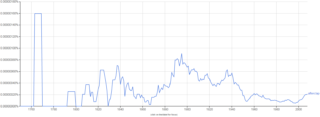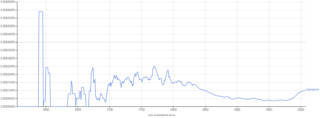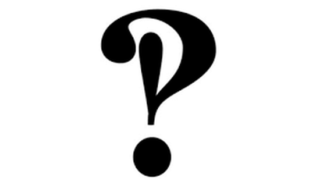Abandon hope, all ye sesquipedalophobes who enter here…
Some words are banished to the footnotes of thesauri for a reason. There is simply no set of circumstances that will drive a sane English speaker to use the word ‘decorticate’ when she could just say ‘peel’. Nor do we look kindly upon those perma-students and political commentators who insist on shoehorning ‘paradigm’ and ‘discourse’ into alternating sentences, when silence would be more conducive to the human condition.
And yet.
I feel that the weird and wonderful history of English has given our language a quite peculiar richness, replete with luxurious synonymy and hyper-expressive idioms. The 20-volume Oxford English Dictionary contains entries for 171,476 words in current use, with a further 47,156 listed as obsolete. Compare and contrast the fact that the average adult English speaker will have an active vocabulary of anywhere between 20,000 to 35,000 words. There’s room for improvement even for the most erudite of speakers.
With that in mind, here is the absolute, unquestionable & timeless list of the ten objectively greatest words in the English language that deserve a little more love.
(The accompanying Google N-Grams show the changes in the recorded frequency of each word as a total % of all the words in Google’s English language corpus – which itself has been growing at a rather rapid rate. The tool is very fun. A word on their reliability, though – the farther back in time they go, the skimpier the written record gets, and so the sketchier the data shown is.)
1) Sesquipedalian (adj.)
An appropriate place to start.
Definition:
a) Having many syllables
b) Given to or characterized by the use of long words
e.g “This article from Today Translations awoke something deep, dark, and sesquipedalian in my soul”

Bonus: ‘Sesquipedalian’ is an ‘autological’ word – it expresses a property it also possesses. Similarly autological is ‘pentasyllabic’ (5 syllables long), ‘translatable’ (because it has foreign language equivalents) and ‘English’ (because this adjective is in the English language.)
The antonym of autological is ‘heterological’ – a word that does not describe one of its own properties. Examples are ‘long’, ‘Chinese’ and ‘monosyllabic’.
The inevitable mystery is as follows: Is ‘heterological’ a heterological word? A world of murky paradox that is best explored with a long evening and not much else to do.
2) Afterclap (n.)
Definition:
An unexpected repercussion of some prior event
e.g “The technological triumph of automation turned sour with the afterclap of 99% global unemployment.”
A handy word with venerable Anglo-Saxon origins, still present in Low Germanic dialects as achterklap – which in Dutch now means something like ‘gossip’ or ‘slander’. The more you know…

3) Tarantism (n.)
Definition:
A psychological illness characterized by an uncontrollable urge to dance about wildly
e.g “And I’m on tonight / My hips don’t lie / It’s my tarantism, alright”
This phenomenon originated in the 11th century, but was prevalent in Italy in the 16th and 17th centuries. This hysterical dancing mania was (supersititously) believed to be caused by the bite of a tarantula – and although no such link has ever been demonstrated, it has gone on to spawn a whole style of folk dancing known as tarantella.
Can still be profitably used as a way to describe groups of people dancing like wazzocks.

4) Apophasis (n.)
Definition:An allusion to something made by insisting that you will not mention it.
An allusion to something made by insisting that you will not mention it.
e.g “‘I shall not sink so low as to mention my adversary’s scandalous extramarital activities,’ the candidate crowed apophatically”
A rhetorical device that is seemingly essential for success in modern politics – good to know when you see it.

5) Defenestrate (v. trans)
Definition:
To throw out of a window, typically another person
e.g “The teacher, upon returning to his year 8 class after a lunch break of abject chaos, defenestrated himself forthwith.”
It seems over-specific in its usage – but upon reflection, why not have a word for throwing people out of windows? This word is widely known amongst academic historians, largely because of the infamous Defenestrations of Prague, which occurred in 1419 and then in 1618. To quote: “The First Defenestration of Prague occurred on July 30, 1419 when a priest led his congregation on a protest through the streets of Prague. At the town hall, someone in a high window threw a rock at the priest. The people were enraged and stormed the town hall. They defenestrated the mayor, the town judge and thirteen members of the town council.” And 200 years later, the second epidemic of defenestrations led to a thirty year-long war.
Diplomatic crises – they don’t make them like they used to.

6) Egregious (adj.)
Definition:
a) Outstandingly, shockingly bad.
b) Remarkably good.
e.g “The listicle was downright egregious”
A word with the curious distinction of having two meanings that are antonymic. Ideal for covering up what you actually mean.

7) Interrobang (n.
Definition:
A non-standard punctuation mark used to combine the functions of the question mark and the exclamation mark. Often portrayed as !? or ?!, but more egregiously with its own symbol: ‽
e.g “’Why in the name of Thor is the interrobang not yet part of Standard English‽ ‘ thundered the eccentric old fogey.”
A word of explanation from the inventor of the interrobang, Martin Speckter, circa 1964:
“To this day, we don’t know exactly what Columbus had in mind when he shouted ‘Land, ho.’ Most historians insist that he cried, ‘Land, ho!’ but there are others who claim it was really ‘Land ho?’ Chances are the intrepid Discoverer was both excited and doubtful, but neither at that time did we, nor even yet, do we, have a point which clearly combines and melds interrogation with exclamation.”
Interrobang justified; case closed.

8) Hornswoggle (v. trans.)
Definition:
To swindle, to cheat, to hoodwink, to defraud
e.g “XI: Thou shalt not hornswoggle thy neighbour, nor anybody else for that matter, thou scoundrel”
A fantastically sonorous word which has largely been lost to the mists of obscure 20th century American slang. The thorough erosion of ‘hornswoggle’s popularity is all the more galling given that the act of hornswoggling itself has enjoyed an inversely proportional rise in popularity ever since.

9) Copacetic (adj.)
/kəʊpəˈsɛtɪk/
Definition:
In excellent order, completely satisfactory
e.g “Hey man, I just called to say that everything is copacetic here.”
As learnèd and latinate as this one sounds, this is a fairly recent slangy neologism which gained traction in the USA between 1915-1920. Despite a plethora of etymological theories, the origin is totally opaque – but the word itself is so pleasant-sounding as to justify its inclusion in your casual vocabulary once the mundanity of ‘good’ and ‘nice’ gets too grating.

10) Boondoggle (n.; also v. intrans)
Definition:
a) work of little or no value done merely to keep (or worse, to look) busy
b) a government-funded project that is of no value to community or nation yet continues because of political favouritism.
e.g “After months of flagrant boondoggling, the young man was fired in a cloudburst of recrimination.”

BONUS: Wazzock (n. slang, UK)
Definition:
A stupid, daft, or irritating person.
e.g “If he met one or two of my constituents in one of the many excellent pubs in my constituency, then they may well tell him he is a wazzock for dealing with this issue in this way.”
According to many august authorities, ‘wazzock’ is the king of the slangy British insults. It is unlikely to be understood anywhere outside these islands, which has its uses. It is also an effective insult because it is less turbocharged than other more meaty putdowns – so you’re unlikely to get done for libel if you use it.
The example cited above is actually straight out of the UK parliamentary record – in January 2016, the Member of Parliament for Louth & Horncastle, Victoria Atkins, made the statement about the policy proposals of a certain Donald Trump – which made a pleasant change from the drab tedium of most political language.


